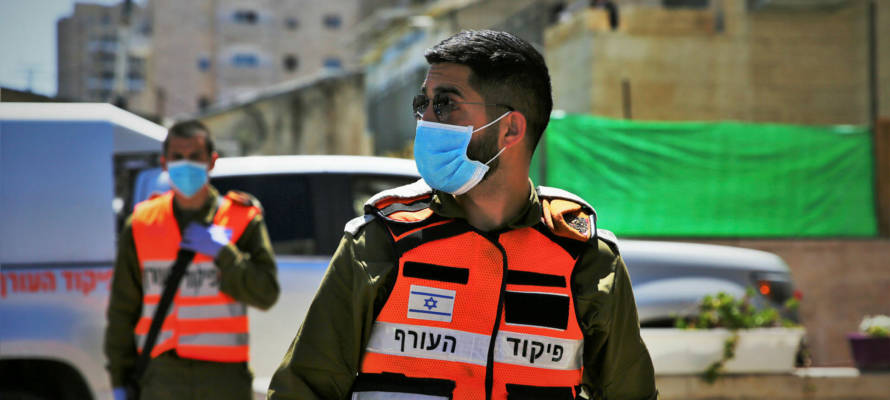A team of soldiers collaborated with doctors to convert home respirators into hospital-grade devices for treating anesthetized coronavirus patients with severe conditions.
By Aryeh Savir, TPS
Respirators developed by a special IDF team using existing machines will be deployed at the Sheba Medical center in Tel Aviv, boosting Israel’s efforts to save patients severely affected by the coronavirus (COVID-19) pandemic.
During the past month, a team of soldiers and officers from Unit 81, the Intelligence Division’s technological unit, collaborated with doctors at Sheba Medical Center and developed a system that enables the conversion of home respiratory assistance units into respirators for treating anesthetized coronavirus patients.
“A month ago, the need for respiratory machines had increased,” says Dr. Amit Zabatani, the physician overseeing the project at Sheba Hospital. “We started to think and see how we can solve the problem. We joined Unit 81 and with the help of intensive 24/7 work we were able to develop a technology, which was also patented.”
“Now, we are definitely ready for a scenario where they [the hospitals] will announce that the respirators have run out – and will move to use our solution,” he added.
Israel currently has some 140 coronavirus patients on respirators and thousands of machines to spare, but is still preparing for a scenario in which thousands of patients will require the life-support machines.
The solution is based on converting home respiratory support units into full respirators for anesthetized patients.
After the conversion process, the system monitors all the important parameters for the physicians and provides them with the necessary information. The system also issues alerts on the patient’s condition, provides an intrusion-breathing scheme, prevents emission of pollutants into the air and provides extremely high-percentage oxygen feed capacity.
“We started development under the idea that we are working on high-availability products to provide in the shortest response time,” shared Major S., the head of the “Breathable Air” project. “That’s why we’re not talking about producing a device, but about connecting a component to devices that are already available in hospitals and manufacturers worldwide.”
The challenge the team faced was not only creating a unit but a simple one that does not require a lot of monitoring and that can be used by doctors from other specialties, Major S. explained.
One hundred units will be delivered to the Sheba Hospital on Sunday, and hundreds of kits will be handed over to the Ministry of Health.
Hundreds of units will be produced every week, as required by the health system.
“We see this as a supreme goal and of course we would love to contribute and share our knowledge, thus helping countries who [need aid] as well,” said Major S.
